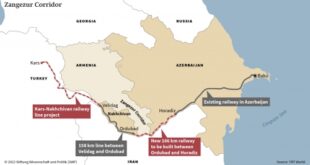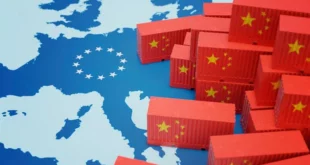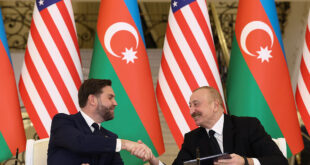Anyone listening to Russian President Vladimir Putin beseeching people to vote for his United Russia party might think Sunday’s parliamentary election would be a tight race.The opposite is true: opinion polls predict his party will take at least 60 percent of the vote, at least four times more than its nearest rivals.
But in this election, winning is not enough. Putin needs a big turnout as well to give him a personal mandate that would allow him to keep a grip on the levers of powers after he steps down next year.
Pollsters predict a lackluster turnout, and independent election monitors say officials are using dirty tricks to boost the turnout — including employers instructing staff to vote.
In a televised address on Wednesday, Putin broke with the tradition that heads of state stay above the party political fray and urged people to vote.
“Do not think that everything is decided beforehand,” he said. “We cannot allow the return to power of those who once already tried but failed to rule the country.”
Russia’s constitution limits Putin to two consecutive terms. His strategy is to cast himself as a “national leader” who will not have the trappings of presidential power once he steps down but will still be able to mould policy.
He is running in Sunday’s election as No. 1 on his United Russia party’s election slate — turning the election in effect into a vote of confidence in Putin.
“The main priority for the Kremlin is to ensure a very high voter turnout,” said Chris Weafer, chief strategist with Uralsib bank in Moscow. “A low turnout … would cast a shadow over the president’s future role.”
“The Kremlin needs a voter turnout of at least 60 percent, which is by no means a certainty,” he said.
LANDSLIDE DETERS VOTERS
The Kremlin’s problem is that with United Russia on course for a landslide victory, people are so bored with the election they may not turn up on polling day.
“I believe it (turnout) will be between 50 and 55 percent,” Leonid Sedov, senior researcher with independent pollster Levada Centre, told Reuters. “The result is pretty much settled, everybody knows that and so interest is low.”
According to monitoring firm TNS Gallup Media, early morning election debates on Channel One, the biggest national broadcaster, are watched by between 16 and 20 percent of viewers watching television at that time.
This figure rises when the debates end and the regular morning program — a magazine show which specializes in health tips and recipes for housewives — resumes.
Lyudmila Svirina, 50, said she was not going to vote. “You vote according to what you need, what you want, but I can’t see anything I want,” she said.
Putin told foreign diplomats this week he believed the vote would be honest, transparent and fair. His officials have denied interfering in the campaign.
But accounts from rights activists and non-governmental organizations (NGOs) suggest there is a campaign to inflate the turnout.
“We have had a mass of calls to our hot line,” Lilia Shibanova, Executive Director of Golos, a coalition of NGOs that is monitoring the vote, told Reuters.
“People (are) saying … they are being forced to vote at work and that there have been meetings in hospitals and schools where they say they are drawing up lists to check who is voting. That is all to increase the turnout.”
 Eurasia Press & News
Eurasia Press & News



